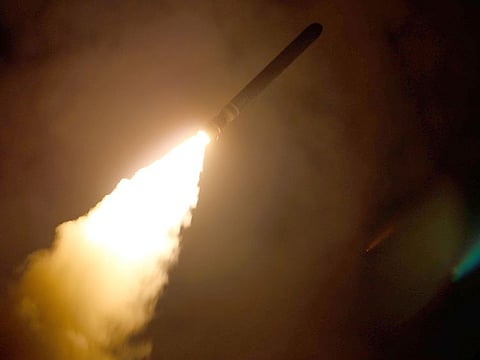Australia to get 220 Tomahawk missiles from US
Canberra ratchets up defence spending to counter growing Chinese military clout

Sydney: Australia said a deal to buy 220 US Tomahawk cruise missiles was essential for keeping "adversaries at bay" Friday, as Canberra ratchets up defence spending to counter growing Chinese military clout.
Defence industry minister Pat Conroy said the potent long-range weapons would be deployed first to existing surface ships and later to a new fleet of nuclear-powered submarines.
A Pentagon agency revealed the sale on Thursday, and put the deal's value at up to US$895 million (Aus$1.3 billion).
The weapons give Australia a large arsenal to strike foes from more than a thousand kilometres away, something that experts say is a fearsome deterrent for any would-be foe.
"Long-range strike is at the heart of this government's commitment to equipping the Australian Defence Force, our national security and our defence interests, keeping adversaries at bay," Conroy told reporters.
Tomahawk missiles first gained widespread public attention during Operation Desert Storm, the 1991 US mission to repel Saddam Hussein's invasion of Kuwait - hitting targets including the Iraqi Presidential Palace.
Word of Australia's latest big-ticket defence purchase comes days after US, British and Australian leaders unveiled plans to kit Canberra out with up to five US nuclear submarines before co-developing its own model.
Acquiring submarines that can travel vast distances without the need to surface puts Australia in an elite club and at the forefront of US-led efforts to push back against Chinese military expansion.
The Tomahawks will first be used in Australia's existing Hobart class destroyers and then the US Virginia class submarines when they are delivered from the early 2030s.
Conroy also revealed that the Virgina class or Australia's own submarines - based on a British design - would one day be equipped with still-to-be-developed hypersonic weapons.
Japan recently announced it would buy about 400 Tomahawk missiles from the United States
Fumio Kishida's government wants to dramatically expand Japan's defence capacity to defend against a rapidly arming China and nuclear-armed North Korea.
Sign up for the Daily Briefing
Get the latest news and updates straight to your inbox



